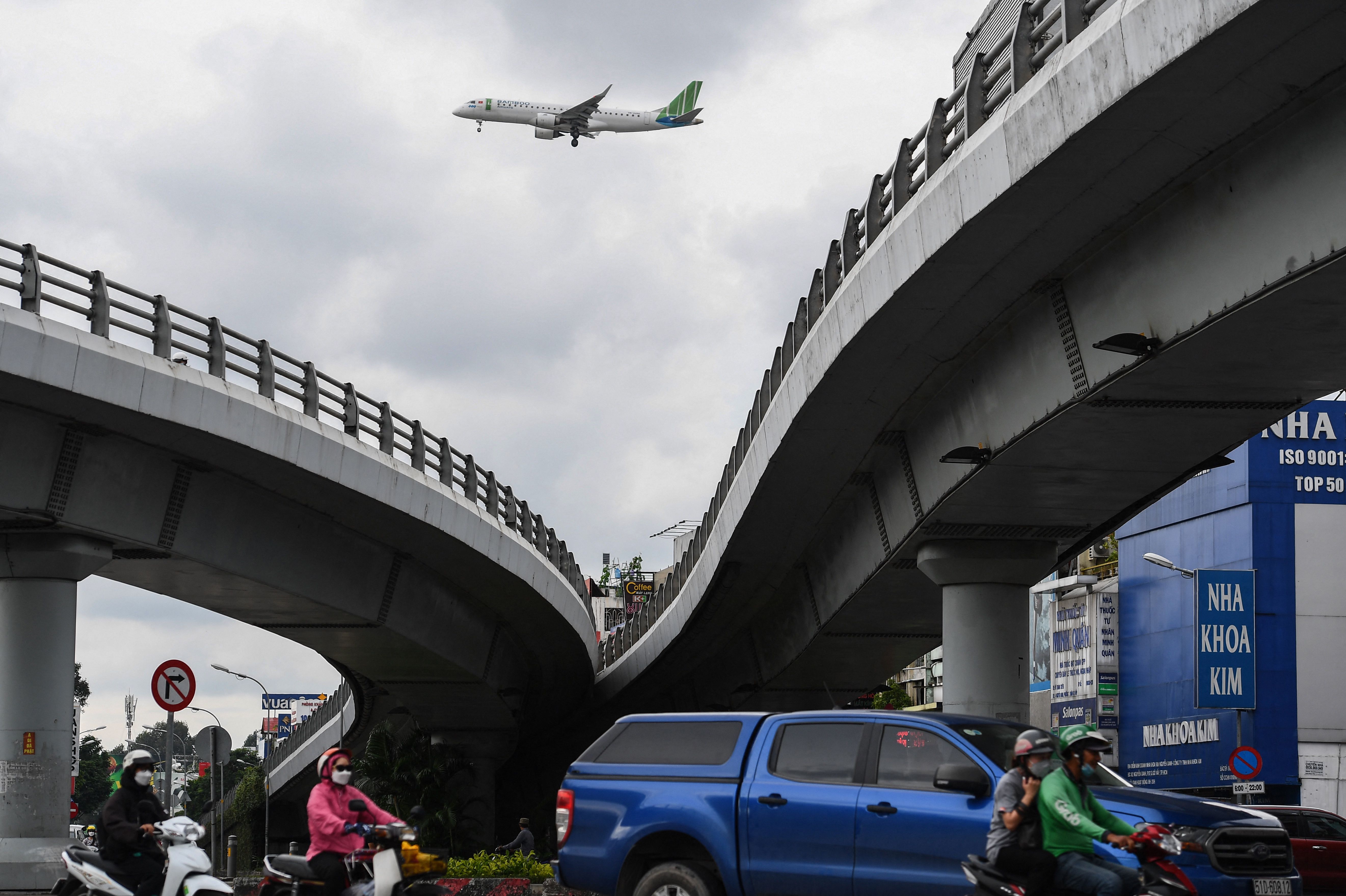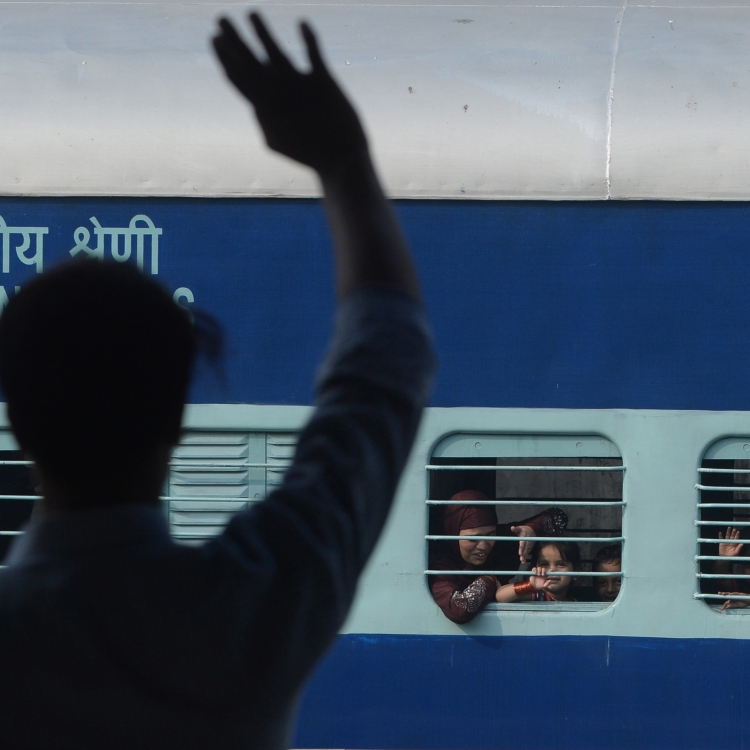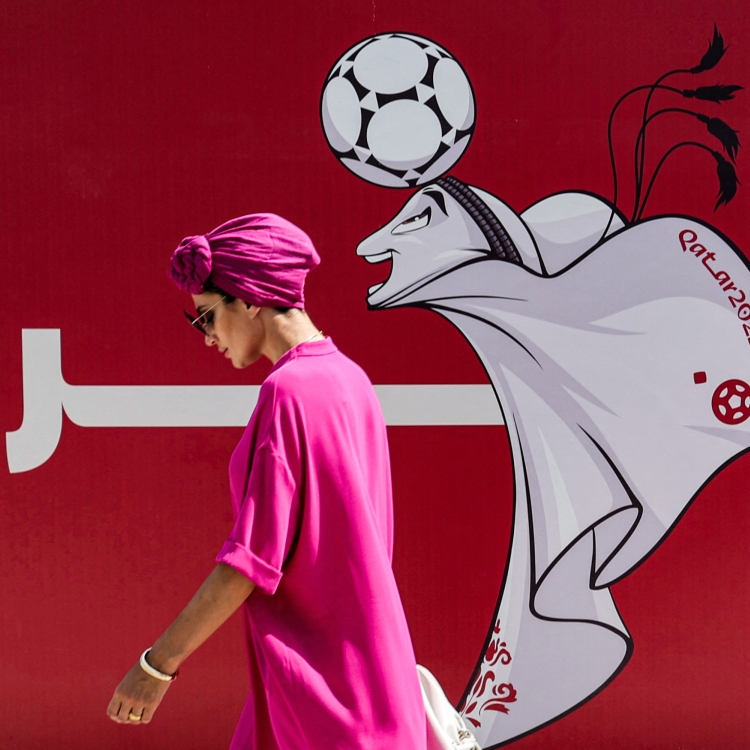magazine text block
As Vietnam’s commercial center and largest metropolis, Ho Chi Minh City is a dynamic place. The streets thrum with constant energy and there is a palpable entrepreneurial spirit in the air.
But the city’s infrastructure is creaking under this dynamism, with vital projects facing relentless delays. Take, for example, Tan Son Nhat International Airport. It has been operating well over capacity for years, and taking domestic flights through it is an exercise in frustration.
In addition to the huge crowds, passengers are frequently ferried onto cramped buses to be driven from the terminal to their plane — an unpleasant experience that hardly befits a global city.
A solution to this problem was proposed in 2019, in the form of a third terminal to be built on land held by the Ministry of National Defense. In June, Prime Minister Pham Minh Chinh set a deadline for this land to be transferred to the municipal government so that construction could begin by the end of September.
That deadline was missed and reset for October 30. As of mid-November, the defense ministry still holds the land, and no construction work has taken place.
magazine text block
Such inter-governmental gridlock is increasingly omnipresent, with red tape holding up medical equipment procurement at hospitals, visa policy changes to boost tourism, future energy plans, and more.
While it is difficult to determine exactly why these bottlenecks are occurring given the opaque nature of governance in Vietnam, analysts say a broad anti-corruption campaign is having unintended consequences.
The ‘Blazing Furnace’
Nguyen Phu Trong, the 78-year-old General Secretary of the Communist Party of Vietnam, began the anti-corruption campaign, known as the ‘blazing furnace,’ several years ago. It has accelerated dramatically this year, with major scandals involving price fixing and kickbacks for COVID-19 test kits and bribes for seats on flights to return Vietnamese nationals to the country during the worst of the pandemic bringing down dozens of officials, including the Minister of Health and the leader of Hanoi.
While the campaign is much-needed in a system where corruption is endemic, experts believe it has also thrown a wrench in the functioning of government.
“It’s obvious that the crackdown is scaring some government officials and decision-makers because they have seen many of their colleagues arrested,” said Le Hong Hiep, Senior Fellow at the Vietnam Studies Programme of the Singapore-based ISEAS-Yusof Ishak Institute. “Some argue that not all of these officials intentionally commit corruption, but because of the complex regulations, especially on public procurement, maybe they unintentionally made a mistake.”
Perhaps the most visible sign of this is an ongoing failure across levels of government to disburse public funding, meaning money that has been set aside is not being used.
In Ho Chi Minh City, 100 public projects had received no planned funding as of the middle of the year due to delays related to land valuation and compensation. Land is an incredibly complex issue in Vietnam, and mistakes are easily made. Projects ranging from metro lines and bridges to airports and hospitals have stalled across the country due to land acquisition challenges.
“Once these projects are delayed, Vietnam’s overall economic performance will be affected,” Hiep said. “And we can see similar situations in many other public sectors, like healthcare, where many officials have been arrested, and many hospitals do not want to proceed with routine procurement.”
As a result, Hiep says, officials are now in self-preservation mode and are delaying important decisions in order to avoid being held responsible in the future if a mistake is made.
magazine quote block
magazine text block
Medical facilities across the country face medicine shortages as a result, while expensive medical equipment has either been seized for investigation or sits idle since spare parts for repairs can’t be procured.
Nguyen Khac Giang, a research fellow at the Hanoi-based Viet Nam Center for Economic and Strategic Studies, also partially attributed the above challenges to the ferocity of the ‘blazing furnace.’
“The crackdown, while useful in cleaning up the system to some extent, has created an atmosphere of fear and anxiety among both the state and private sectors,” he said.
In recent weeks a dramatic crackdown on fraudulent business activities by major private property developers has helped spark fears that the real estate sector could collapse, while at the same time Vietnam is being impacted by global inflation, the actions of foreign central banks, and falling consumer demand in key export markets.
“No one knows who will be next,” Giang continued. “This inevitably slows down the decision-making process at all levels, as one might see in the critical lack of medical equipment, the delay of infrastructure projects, and the very low rate of public investment disbursement.”
Moving forward
According to Hiep, the central government is well aware of these problems, but solutions could create further challenges of their own. For example, officials can be punished if public projects fail to meet a deadline, or if they fail to disburse allocated public funding in a given year.
“I think officials face a dilemma now,” he explained. “They have to deliver if they want to keep their job, but at the same time, they have to be careful not to make mistakes.”
This links to another systemic issue: the extremely low salaries that civil servants receive. The base salary for public employees is about $60 per month, and even if a worker is experienced and makes substantially more, this income is not enough to keep up with cost of living, especially in major cities.
As a result, anti-corruption investigators must face a brutal truth.
“If officials don't steal money, they have no incentive to work because their salary is so low,” Hiep said. “So if they deliver and get projects done, they expect to be rewarded. But if they can’t take kickbacks and their salary is so low, they won't feel it's worth the effort.”
That base salary is scheduled to be increased to $73 per month in mid-2023.
Looking further ahead, Nguyen Phu Trong is in his final term as General Secretary - an unprecedented third term, with special dispensation given to allow him to serve beyond the constitutional two-term limit. While the ‘blazing furnace’ is his legacy-defining project, analysts expect it to continue beyond his rule, with uncertain fallout.
“We are in uncharted waters,” Giang said. “The scale and timing of the anti-corruption campaign show a lack of consideration for economic impacts, while the race for leadership will start next year [ahead of the next National Congress], which might play a crucial role in how the crackdown will go forward.”
“I think it will continue under Trong, and even after him,” Hiep added. “The next leader will likely continue this campaign to strengthen his authority and to keep his rivals at bay.”





